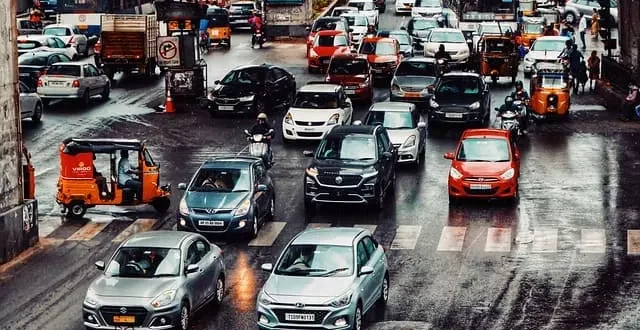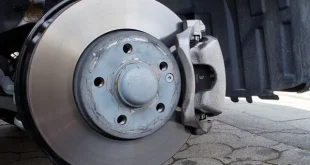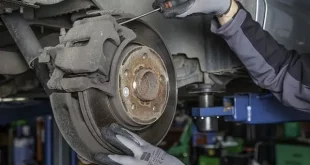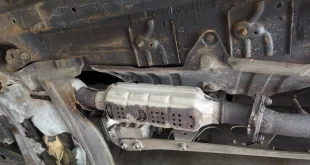Tips on how to renew coe from Imaxshift.com – Renewing the Certificate of Entitlement (COE) is a crucial process for vehicle owners in Singapore who wish to continue using their vehicles beyond the initial 10-year period granted by the COE.
The process involves several steps and considerations, each significant in ensuring the legality and feasibility of continuing to own and operate a vehicle.
How To Renew Coe (Certificate of Entitlement)
Firstly, the renewal process should be initiated before the current COE expires. Owners have the option to renew the COE for either 5 or 10 years. For a 5-year renewal, only 50% of the Prevailing Quota Premium (PQP) is payable, but it’s essential to note that the vehicle must be deregistered after this period without the possibility of further renewal. For a 10-year renewal, the full PQP is payable, but there is no limit to the number of times a COE can be renewed in 10-year increments, provided the vehicle does not have a statutory lifespan.
The PQP is a key component in the COE renewal process. It represents the moving average of the Quota Premium (QP) in the last three months, thus varying monthly depending on the QP in the bidding exercises conducted in the preceding three months. Months without bidding are excluded from this calculation.
COE renewal can be carried out online via the OneMotoring website, by mail, or in person at the Land Transport Authority’s (LTA) Customer Service Centre. For online renewal, an internet banking account with specific banks like DBS/POSB, UOB, Citibank, Standard Chartered, or OCBC is required. It’s advised to ensure sufficient funds and to increase the daily limit before proceeding with the renewal. If opting for renewal by mail, the application form should be completed and sent to the LTA with the payment. In the case of in-person renewal, the same form and payment should be submitted at the LTA Customer Service Centre.
Renewing the COE after its expiry incurs late fees, which vary based on the vehicle type. These fees range from $50 for motorcycles to $250 for larger vehicles like those above 3,000cc engine capacity and business service passenger vehicles.
Additionally, COE renewal entails several financial considerations. Upon renewal, the owner forfeits any PARF (Prevailing Additional Registration Fee) and COE rebates. The annual road tax will also increase yearly by 10% of the car’s regular road tax rate after the first 10 years, capped at a maximum of 50%. Insurance options might be limited for older vehicles, and they are typically more costly to maintain.
Before deciding on COE renewal, vehicle owners should evaluate factors like the vehicle’s condition, mileage, drivetrain integrity, and the availability of spare parts. It’s also prudent to consider the vehicle’s age and frequency of maintenance.
COE renewal loans are an option for those unable to pay the PQP upfront. Bank loans offer transparency and decent interest rates but require a good credit score and some processing time. In-house loans might be faster but can come with higher interest rates and administrative fees.
Analysis of the Environmental Impact of COE Renewal
- Use of Older Vehicles: Discuss how COE renewal encourages the use of older vehicles, which may not be as efficient as new models in terms of emissions and fuel consumption. This is crucial, considering Singapore’s strong commitment to sustainability and reducing carbon footprint.
- Emission Comparisons: Provide data or analysis on the difference in emissions between older and newer vehicles. This could include statistics on the average CO2 emissions of vehicles over 10 years old compared to newer models.
- Incentives for Eco-friendly Vehicles: Explain if there are incentives or programs that encourage vehicle owners to switch to more environmentally friendly vehicles instead of renewing the COE. For example, subsidy programs for the purchase of electric or hybrid vehicles.
- Government Policies on Older Vehicles: Outline relevant Singapore government policies or regulations related to the use of older vehicles, such as permitted emission limits or restrictions on the use of old vehicles in certain areas.
- Public Education: Provide information on how the public can be made more aware of the environmental impact of choosing to renew the COE of an old vehicle, including eco-friendlier alternatives.
Cost-Effectiveness and Benefits Analysis of COE Renewal versus Purchasing a New Vehicle
- Depreciation Considerations: Compare the depreciation rates of renewing a COE for an older vehicle versus purchasing a new vehicle. This should include an analysis of how the value of a vehicle decreases over time and how this impacts the overall financial decision.
- Technological Advancements: Discuss the benefits of newer vehicle models that come with advanced technology, improved fuel efficiency, and better safety features. Explain how these advancements might be absent in older vehicles, impacting the decision to renew a COE versus buying new.
- Maintenance Costs: Provide a detailed comparison of the expected maintenance costs for older vehicles (which might increase with age) against the maintenance costs for newer models. This could include average repair costs, availability of spare parts, and the reliability of older versus newer vehicles.
- Fuel Efficiency and Operating Costs: Analyze the difference in fuel efficiency between older and newer vehicles. Highlight how newer models are often more fuel-efficient and have lower operating costs, which can be a significant factor in the long-term cost analysis.
- Environmental Impact: Include a brief discussion on the environmental implications of continuing to use an older vehicle compared to replacing it with a newer, more eco-friendly model. This ties in with global trends towards reducing vehicular emissions.
- Insurance Premiums: Examine the difference in insurance costs between older vehicles (which may have higher premiums due to higher risk) and newer models.
- Government Incentives and Policies: Mention any government incentives for purchasing new vehicles, especially those that promote the use of environmentally friendly vehicles, and how these incentives might tilt the balance in favor of buying new rather than renewing the COE.
Influence of Market Trends and Demand on PQP and COE Renewal Decisions
- Supply and Demand Dynamics: Analyze how the supply and demand for Certificate of Entitlement in Singapore’s vehicle market affect the Prevailing Quota Premium (PQP). Discuss the factors that influence these dynamics, such as economic conditions, population growth, and changes in public transportation infrastructure.
- Historical Trends in COE Prices: Present a historical analysis of COE prices over the years, highlighting trends, fluctuations, and their causes. This could include how economic downturns, policy changes, or shifts in consumer preferences have historically impacted COE prices.
- Forecasting Future Trends: Offer insights or expert opinions on future trends in COE prices. This could involve predictions based on current market conditions, government policies, and emerging trends in vehicle ownership and usage.
- Impact of Global Economic Conditions: Discuss how global economic factors, such as oil prices, trade policies, or international economic crises, might influence the local vehicle market and COE prices.
- Public Perception and Consumer Behavior: Examine how public perception of the economy and COE system influences consumer behavior in vehicle ownership. This might include survey data or studies on consumer confidence and its impact on COE bidding and renewal decisions.
- Alternative Transportation Trends: Consider the impact of growing trends in alternative transportation, like car-sharing, public transportation improvements, or the increasing popularity of bicycles and electric scooters, on the demand for COEs.
Impact of Recent and Upcoming Government Policies on COE Renewals
- Policy Changes Affecting COE System: Analyze recent or anticipated changes in government policies that directly affect the COE system. This might include adjustments in COE quota, changes in the bidding process, or modifications in COE validity periods.
- Emission Standards and Environmental Regulations: Examine how new emission standards or environmental regulations impact COE renewals. Discuss whether there are stricter standards for older vehicles and how this influences the decision to renew COEs for such vehicles.
- Incentives for Newer, Greener Vehicles: Highlight any government incentives or schemes aimed at promoting the purchase of new, environmentally friendly vehicles, such as subsidies for electric or hybrid cars, and how these incentives might discourage COE renewals.
- Road Tax Adjustments: Discuss any recent changes in road tax rates, especially for older vehicles, and how these changes affect the overall cost of COE renewal. Include information on how these taxes are calculated and their impact on vehicle ownership costs.
- Transportation and Urban Planning Goals: Relate the COE policy to Singapore’s broader transportation and urban planning goals. Explain how COE renewals align with or contradict the city-state’s objectives for reducing traffic congestion, promoting public transportation, or achieving sustainability targets.
- Impact on Commercial Vehicle Owners: Detail any specific policy changes that affect commercial vehicles, such as goods vehicles and buses, which might have different considerations and impacts compared to personal vehicles.
- Public Consultation and Policy Development: Mention any recent or ongoing public consultations or studies conducted by the government regarding COE and vehicle policies, emphasizing the role of public opinion in shaping these policies.
Special Considerations for COE Renewal of Commercial Vehicles
- Regulatory Differences for Commercial Vehicles: Discuss any specific regulations or requirements that apply to COE renewals for commercial vehicles, such as goods vehicles, buses, or taxis, which may differ from those for private vehicles.
- Economic Implications for Businesses: Analyze the economic impact of COE renewals on businesses that rely on commercial vehicles. This should include considerations of operational costs, profitability, and the potential need for fleet upgrades.
- Vehicle Lifespan and Usage: Address how the intended lifespan and usage intensity of commercial vehicles influence the decision to renew their COEs. For instance, commercial vehicles might be subject to more wear and tear, affecting their suitability for COE renewal.
- Impact of Technological Advancements: Evaluate the impact of technological advancements in commercial vehicles, such as improved fuel efficiency, reduced emissions, and enhanced safety features, and how these factors might influence a business’s decision to renew COEs or invest in new vehicles.
- Government Incentives and Support Programs: Highlight any specific government programs or incentives aimed at assisting businesses with commercial vehicle COE renewals or replacements, especially those promoting environmentally friendly alternatives.
- Case Studies or Business Examples: Provide real-world examples or case studies of businesses facing decisions about COE renewals for their commercial vehicles. This could include cost-benefit analyses, decision-making processes, and the outcomes of these decisions.
- Impact on Service Delivery and Logistics: Discuss the broader implications of COE renewals for commercial vehicles on service delivery, logistics, and supply chain efficiency in Singapore. Consider how older vehicles might affect operational efficiency and reliability.
In summary, COE renewal in Singapore is a detailed process requiring careful financial planning and consideration of the vehicle’s condition and future use. Renewing the COE allows vehicle owners to continue using their vehicles, but it comes with specific financial implications and responsibilities. (automotive)
 Imaxshift.com : Insurance, Finance, Technology & Gadget Blog
Imaxshift.com : Insurance, Finance, Technology & Gadget Blog



